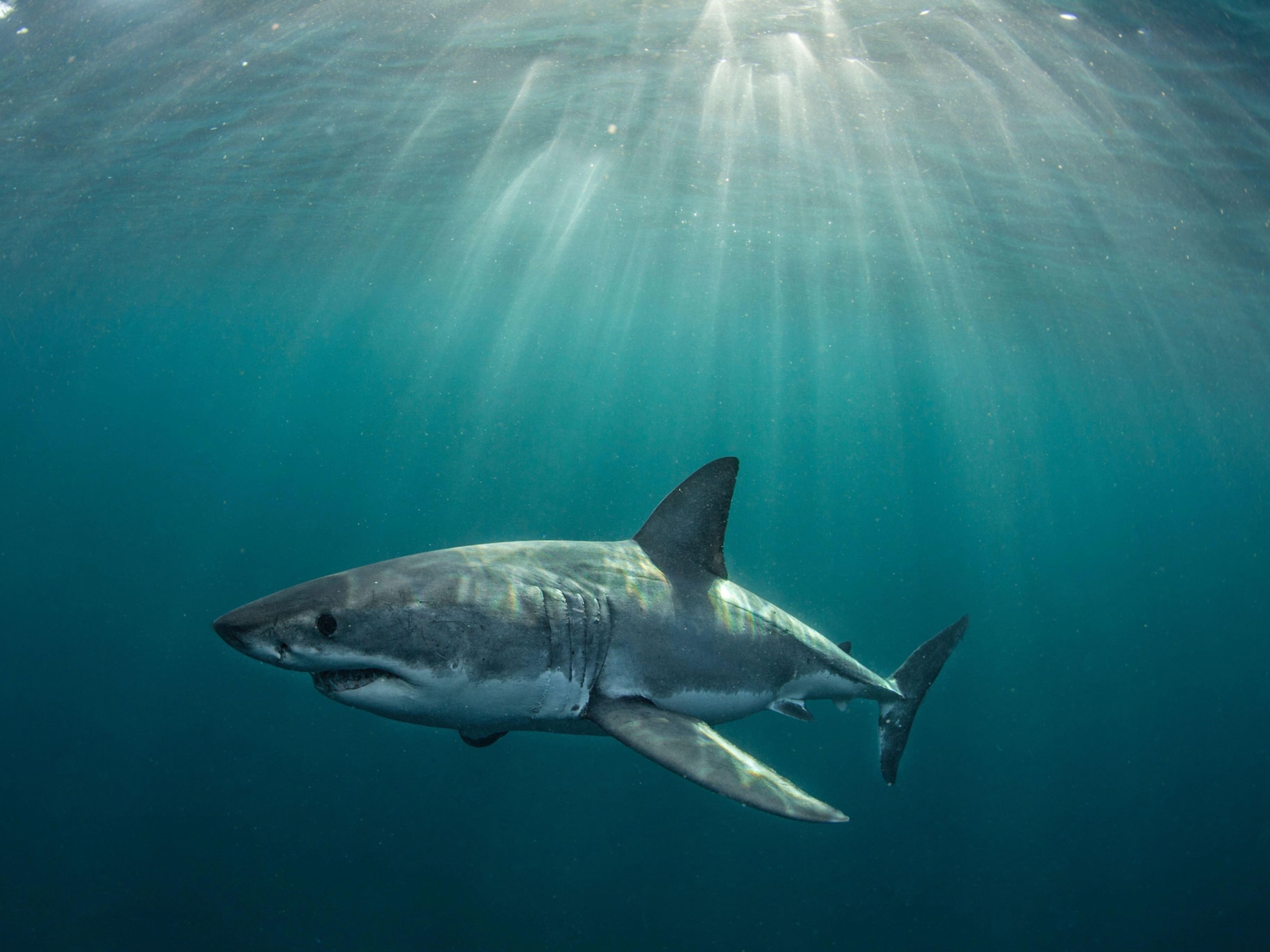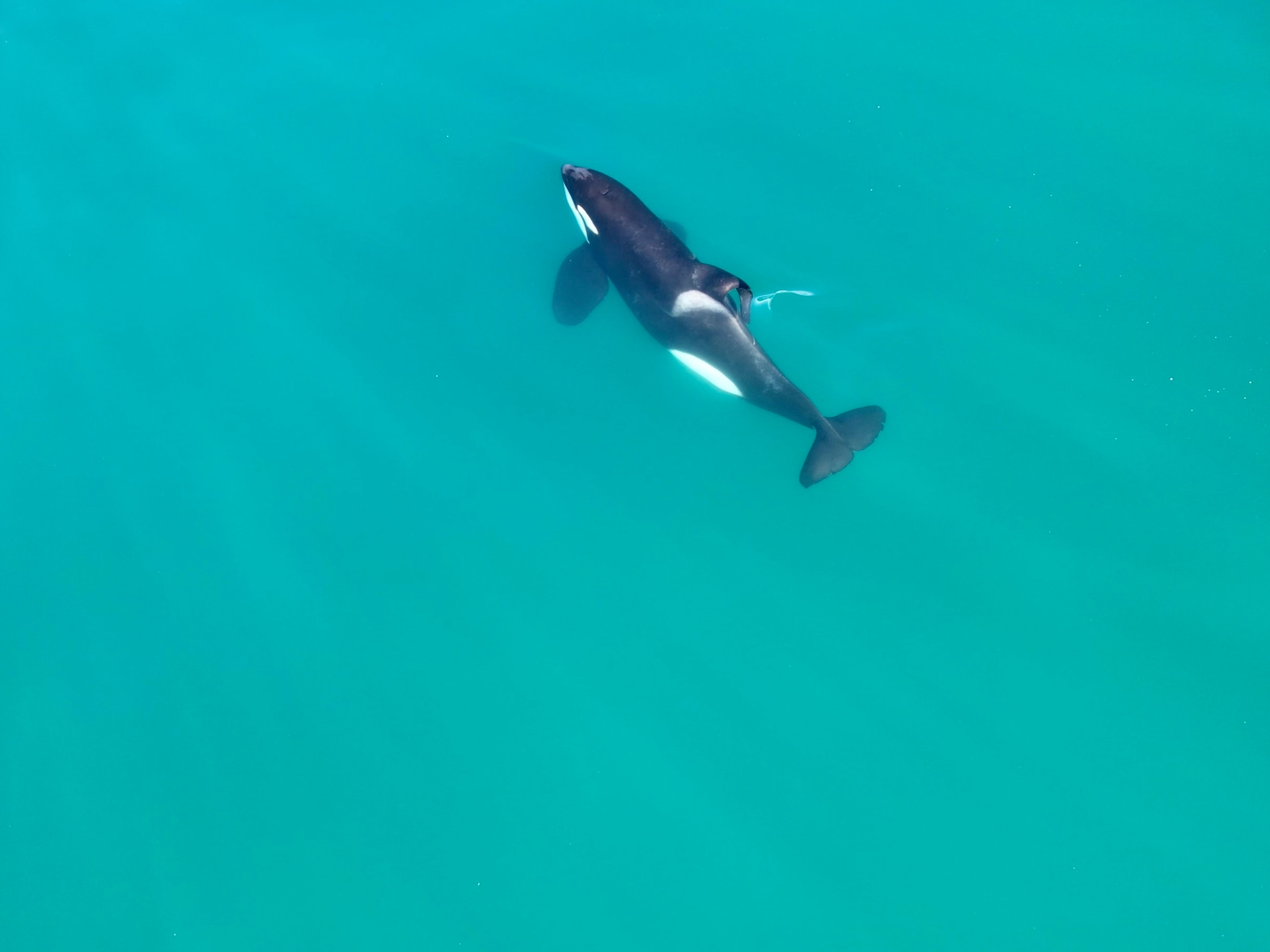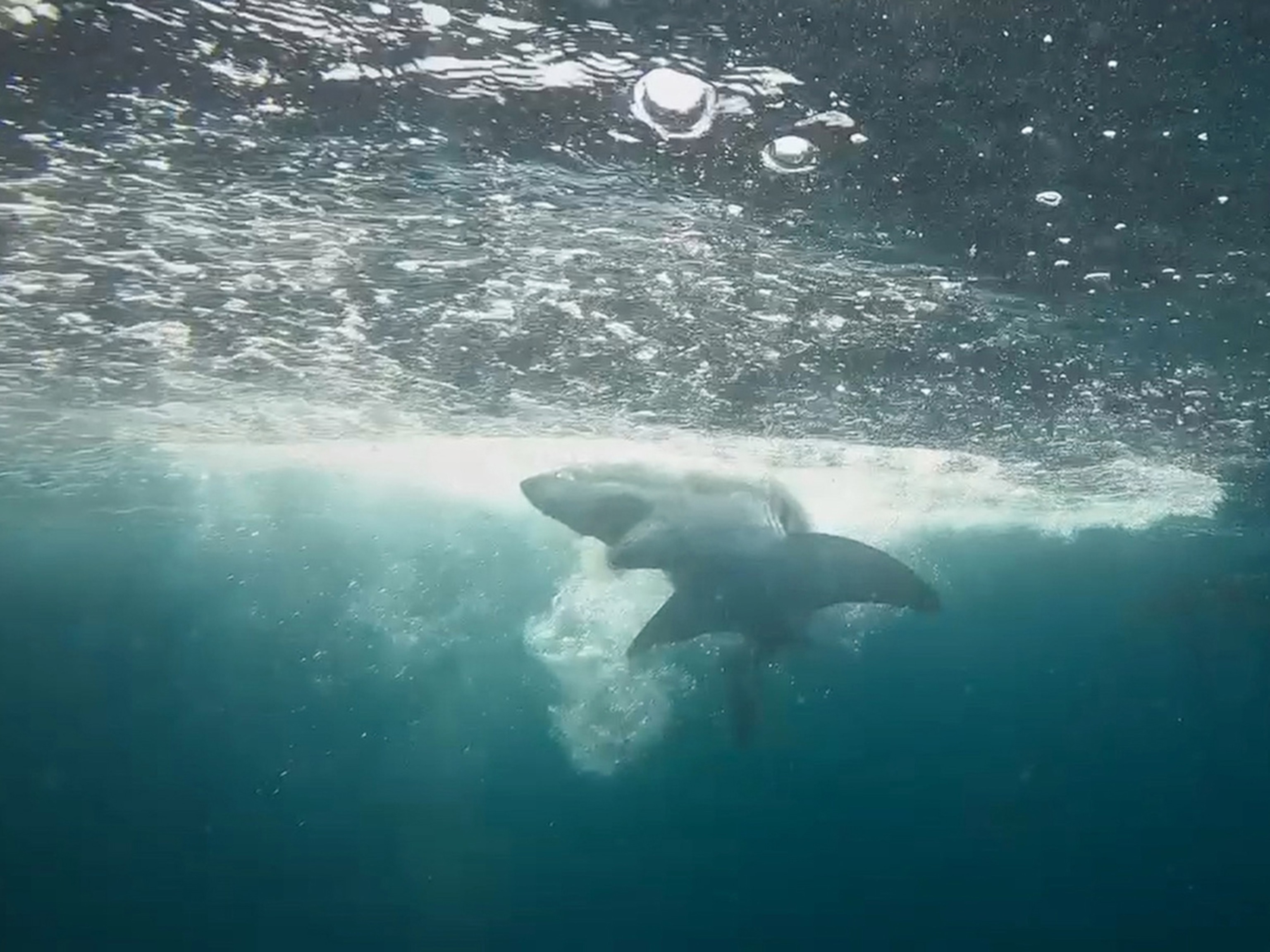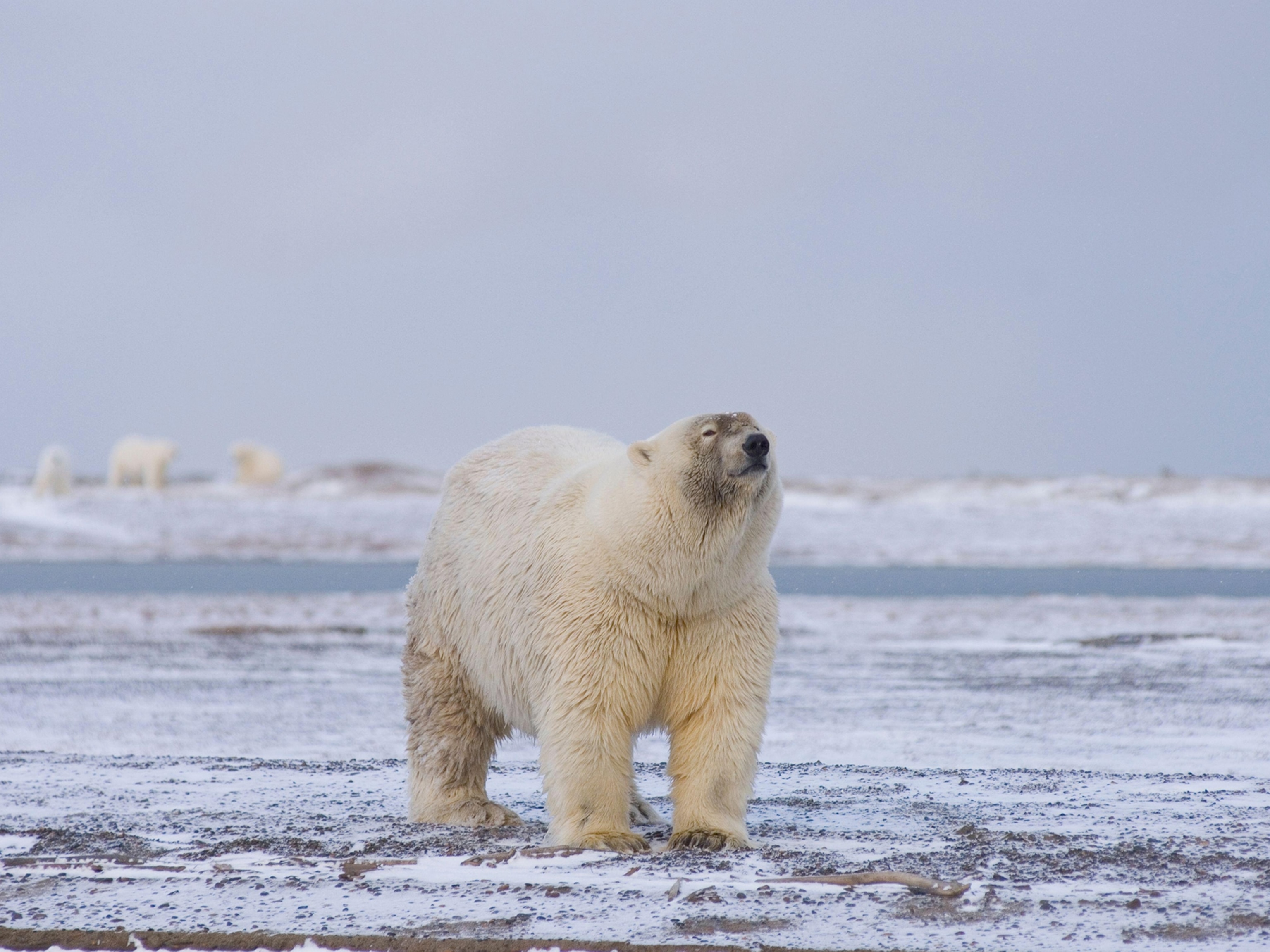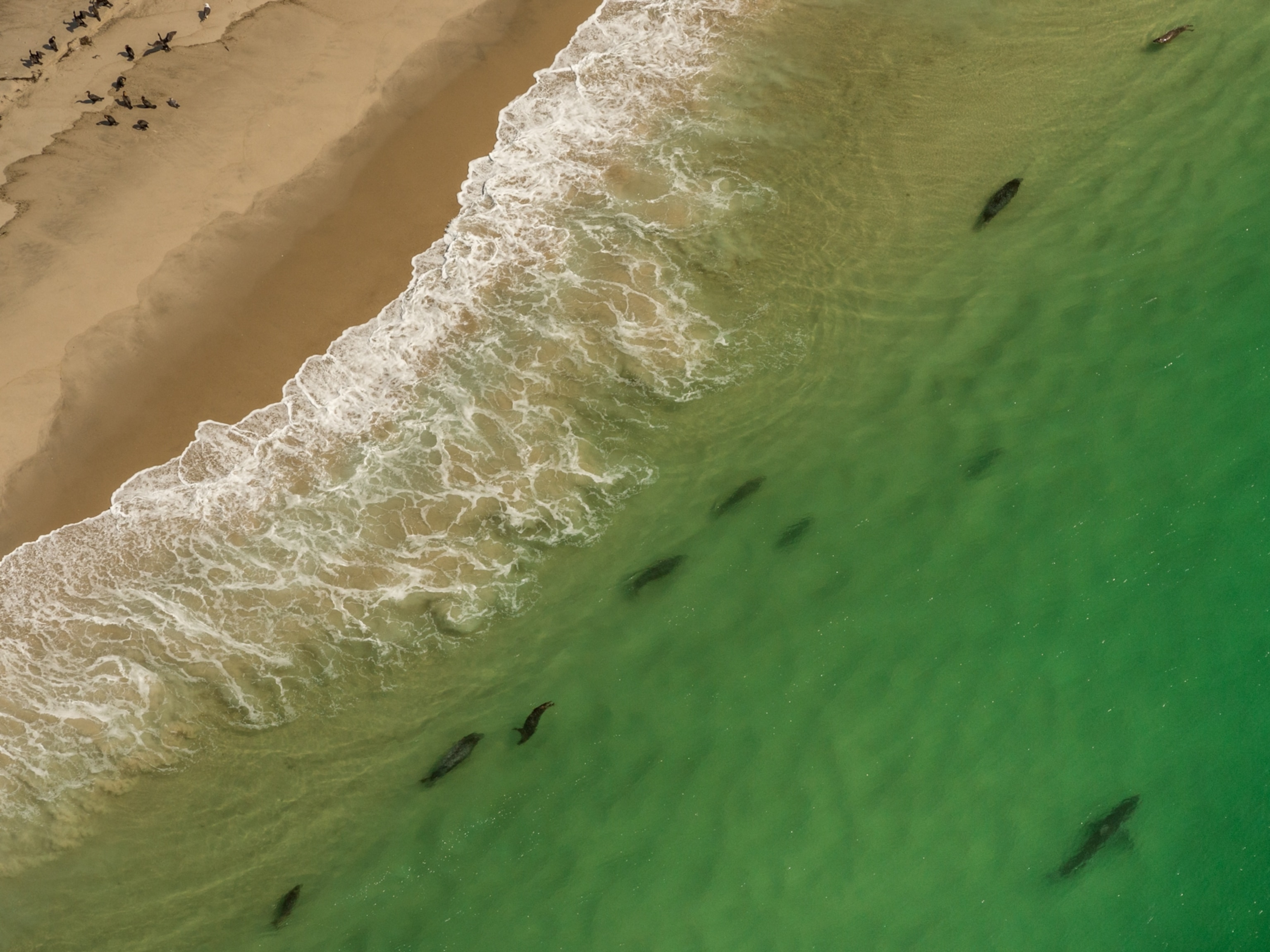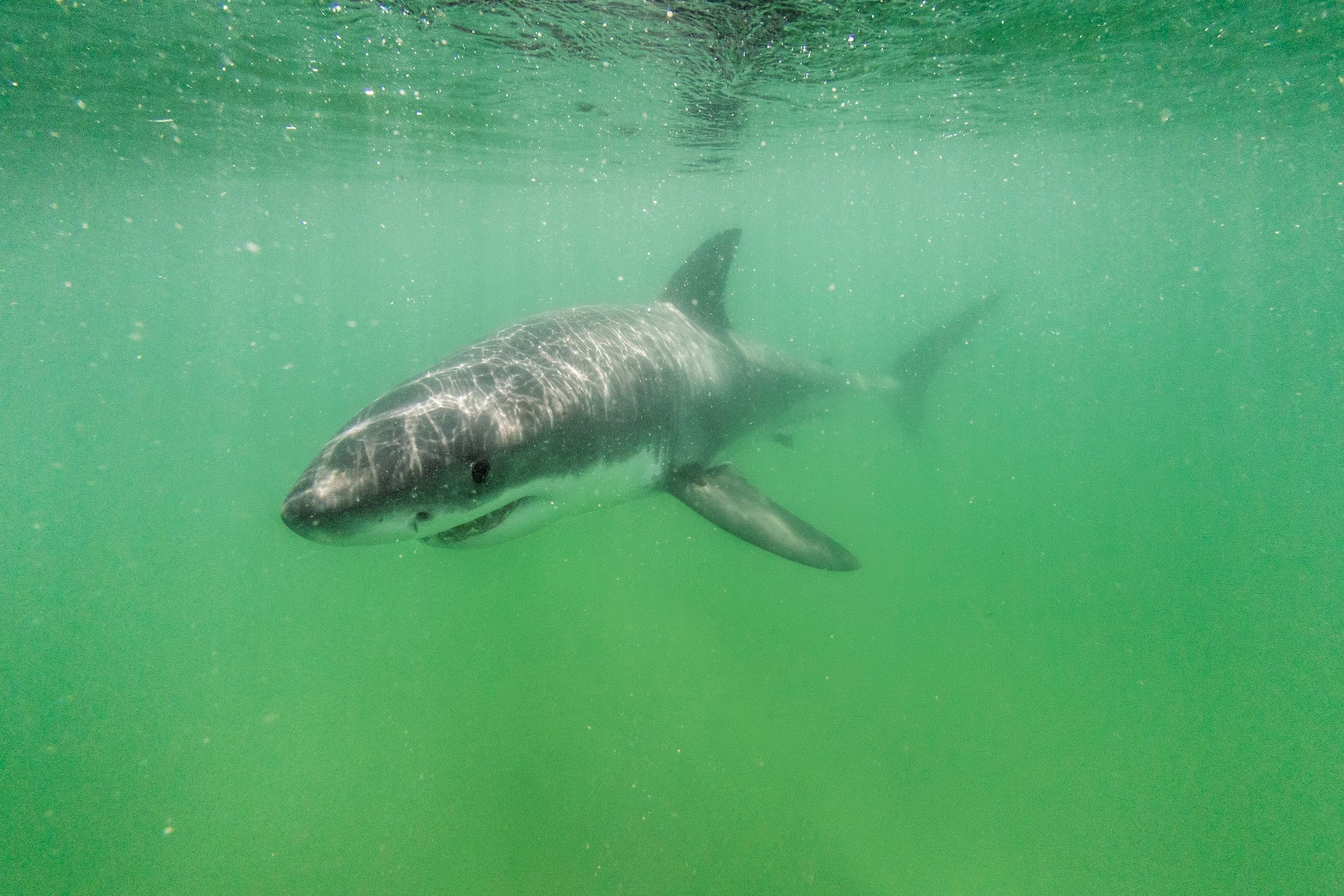
New Englanders May Soon See More Great White Sharks
As Cape Cod populations increase, some sharks may be venturing as far north as Maine.
Maine may soon have more sharks in its waters. Nine species currently live in the region, but scientists believe great white sharks (made famous by the movie Jaws) could be making a comeback.
Questions remain over just how many could be moving back into northern waters and how climate change-induced warming waters could impact how long they stay.
New research first reported by the AP suggests great whites may be making Maine a new home. According to James Sulikowski, a scientist at the University of New England, great whites have been known to swim through waters off the coast of Maine, but relatively little data has been available on exactly how many there were or where they were going. Even less understood was whether or not their populations were increasing.
But in 2016, a noted shark scientist from the Massachusetts Marine Fisheries Department, Gregory Skomal, was looking to create a more complete map of shark territory off the coast of the northeastern Atlantic. (Read more about why great white sharks are still a mystery to us.)
He and Sulikowski worked to install acoustic tracking receivers in waters near a seal colony at Old Orchard Beach in southern Maine. To better understand great white populations, Skomal has outfitted about 120 sharks with acoustic transmitters. Every time a shark wearing a transmitter swims past a corresponding receiver, it pings the researchers.
It was one of these individuals that pinged the scientists when it swam through southern Maine in 2016, and in 2017, a different shark also outfitted with a transmitter was registered.
"It's not unusual for them to be in the Gulf of Maine," said Sulikowski. "But it is to have them repeatedly coming to the same area."
He suspects they're looking for food. Great whites primarily prey on pinnipeds like seals and sea lions, but they also hunt marine mammals found in Atlantic waters.
More Sharks in the Water
Since 2014, great white shark populations have been rising in the northeastern U.S.
Skomal, with the state of Massachusetts, conducts annual aerial surveys. In 2009, as few as five were spotted, but in 2016, researchers spotted about 150.
The exact population count is unclear, both scientists noted. They can only gather data for the sharks they see, but for every shark they identify, said Sulikowski, "there are probably many more that have been going undetected."
Skomal sees the growing shark populations off the East Coast as a conservation success story. Great whites are a protected species, and many of the prey they need to survive are also protected. It's more likely that sharks are returning to historic population levels, he said, than growing exceptionally large.
Warming Oceans
Great whites have a large range. The western Atlantic population migrates as far south as the Gulf of Mexico in the winter, and in the summer, they can be found in waters as far north as Newfoundland, Canada.
The scientists' next steps are to figure out how climate change may be impacting these growing populations. Unlike other species of sharks, great whites are endothermic, which means they can regulate their own body temperature instead of moving to warmer or colder waters.
"Those fish will be less impacted by climate change," said Skomal. "They have a great flexibility to tolerate changing temperatures."
Migration routes could still be impacted, but it's unclear by how much. Sulikowski explained that sharks migrate to warmer waters to expend less energy acclimating to colder waters. This helps them conserve energy during mating season. If northern waters stay warmer for longer, both scientists are unsure of how shark migration will be impacted.
"As climate change takes place, their movement may change," said Sulikowski. "They could hang around Maine longer."
Rising shark populations could also create more competition for resources, pushing sharks farther outside the range they've inhabited for the past few decades.
More research, he said, is needed to fully understand whether the sharks have found a new summer home in Maine, or if they're simply stopping by on their way to farther north summer grounds in Canada.

